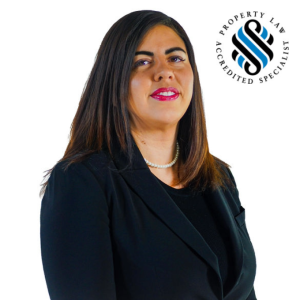Most apartments, townhouses and new estates in New South Wales are sold under strata or community title rather than traditional Torrens title.
The conveyancing process is similar in principle — a contract, exchange, and settlement — but these properties come with extra legal documents, shared ownership structures, and ongoing financial obligations.
Understanding those differences is essential before signing a contract.
Understanding Strata and Community Title
Strata title
Created under the Strata Schemes Development Act 2015 (NSW), strata title divides a larger parcel of land into individual lots and common property.
Each owner holds a Torrens title for their lot and shares ownership of the common property through an owners corporation governed by the Strata Schemes Management Act 2015 (NSW).
The owners corporation is responsible for maintenance, insurance, and by-laws regulating how the property is used — from renovations and pets to parking and noise.
Community title
Community title, governed by the Community Land Development Act 2021 (NSW) and the Community Land Management Act 2021 (NSW), applies to estates with shared infrastructure such as roads, parks or recreation areas.
Owners hold their own lots but share ownership and management of association property through a community association.
Both systems involve collective decision-making and regular financial contributions, which must be disclosed in the sale contract.
Additional Documents Required
Contracts for strata or community title property require more attachments than a standard residential sale.
Under Schedule 1 of the Conveyancing (Sale of Land) Regulation 2022 (NSW), the vendor must include:
ï A copy of the strata plan or community plan;
ï Any by-laws or management statement applicable to the scheme;
ï The schedule of unit entitlements for the lot; and
ï Any disclosure documents prescribed by the Regulation, such as recorded easements or restrictions.
If these are missing or inaccurate, the buyer may be entitled to rescind the contract.
A property lawyer ensures the disclosure is complete and compliant before exchange.
Common Issues in Strata Conveyancing
Strata transactions often present issues that do not arise with standalone houses.
Special levies and building defects
Older buildings and new developments alike may face expensive rectification work.
Minutes of owners corporation meetings and strata inspection reports often reveal proposed levies or defect claims under statutory warranty.
Unapproved renovations
Lot owners sometimes alter common property without consent — for example enclosing balconies or installing flooring.
Those works can breach by-laws or building regulations, exposing the next owner to enforcement action.
Disputes within the owners corporation
Conflicts about repairs, pets or short-term letting can delay decisions and affect liveability.
A lawyer reviews the by-laws and recent meeting minutes to identify any recurring disputes.
Usage restrictions
Some schemes restrict pets, smoking, or short-term accommodation.
Understanding these rules before exchange avoids unpleasant surprises after settlement.
Common Issues in Community Title Conveyancing
Community title estates have their own complexities.
Shared facilities and maintenance
Roads, playgrounds and recreation areas are owned collectively.
If maintenance or insurance is neglected, owners can face unexpected levies.
Management statements
These documents function like by-laws, setting out architectural guidelines, use restrictions and voting rights.
They can be lengthy and highly technical; a property lawyer can explain what your obligations are.
Financial contributions and capital works
Buyers should know the level of annual contributions and whether major capital works are planned.
A review of budgets and meeting minutes reveals whether the association is financially sound.
Governance and compliance
Community associations must hold meetings and maintain records similar to owners corporations. There are also requirements for insurance and fire safety that must be met by the association.
Due Diligence Before Exchange
Thorough due diligence prevents unpleasant discoveries after exchange.
Your lawyer will typically:
Obtain a strata records inspection report or community association report;
Review recent meeting minutes, insurance certificates and budgets;
Check whether levies are current and whether legal proceedings are on foot;
Identify any proposed special levies, defect litigation or compliance notices;
Explain the by-laws or management statement in plain language.
This investigation clarifies what you are really buying — not just a unit or lot, but a share of an organisation with its own rules, finances and obligations.
Settlement and Post-Completion
The procedural steps mirror Torrens title conveyancing, usually with a six-week settlement period.
Additional tasks include:
Calculating levy adjustments up to the settlement date;
Confirming that the vendor’s levies and contributions are fully paid;
Notifying the owners corporation or community association of the change of ownership;
Ensuring future levy notices and correspondence go to the new owner.
For buyers, prompt notification ensures participation in meetings and access to facilities.
For sellers, it avoids continued liability for levies after settlement.
Why Legal Oversight Is Essential
Strata and community title conveyancing requires careful attention to detail.
An experienced property lawyer will:
Ensure the contract complies with the correct legislation;
Verify that all prescribed documents and certificates are attached;
Review strata or community records for defects, levies and disputes;
Advise on restrictions in by-laws or management statements;
Calculate adjustments accurately and oversee settlement through PEXA.
Failing to identify a defect, unpaid levy or restrictive by-law can leave an owner with ongoing costs or limitations that could have been avoided with early legal review.
Conveyancing in NSW
If you're dealing with strata or community-title conveyancing in NSW, you may also benefit from our other related guides that explain how the legal process, costs and obligations differ from standard property transactions:
Together, these resources will help you understand how to navigate the additional legal and financial layers of strata or community-title property — from reviewing by-laws and levies to managing settlement and future obligations.
Conclusion
Strata and community title properties offer shared facilities and modern living, but they also bring shared responsibilities and additional layers of regulation.
A lawyer experienced in these transactions will make sure the contract is compliant, the financials are transparent, and you understand exactly what you are buying or selling.
Our property team includes multiple Law Society Accredited Specialists in Property Law who act in strata and community title transactions across Sydney and NSW.
If you’re buying or selling one of these properties, give us a call or submit an enquiry now to speak with one of our conveyancing solicitors.












